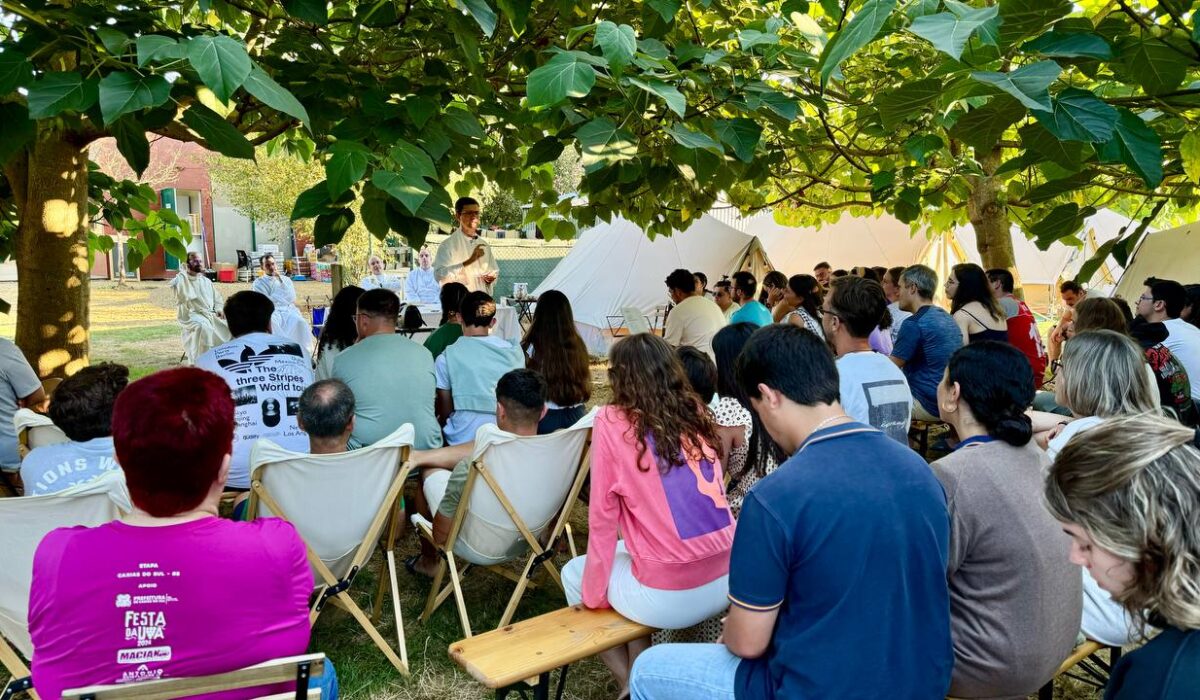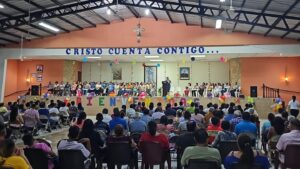
Gustavo Rosende Salazar
Diócesis San Bernardo- Chile
Ex Secretary – Grup Latinoamerican Group of “Cursillos de Cristiandad”.
I feel blessed. I am convinced that I am the Lord’s favorite and that one of the gifts with which my Heavenly Father wanted to spoil me was the invitation he gave me to serve in a beautiful work, and so it was that for five years I had the opportunity to travel – in person and virtually – throughout Latin America with the GLCC. There, I was able to learn the different forms and colors with which the Movement concretized its Charism in each country, with joy and dedication reflected in the men and women who chose the Cursillo Movement as their way of life. However, what those leaders manifested as difficulties was also very valuable, as not all of us want to show or see. Among those pains, one in particular pricked everyone’s soul: the lack of young people in the Movement, an undeniable reality.
Although this did not surprise me, it made me reflect. It is not a mystery to anyone that the MCC was born in the heart of the Spanish Catholic Action Youth and that for many years, Cursillos was considered by many as an instance directed almost exclusively to young people and that although the origin was such, a few years later it was consolidated with a charisma and a method that worked transversely for all ages. Thus, Cursillos were added worldwide, but for some reason, subtracting the participation of young leaders.
What happened during this time, in all the years of the Movement’s history, with the participation of young people? There is evidence that this is not an exclusive issue of our times. Already in 1968, in the 1st Latin American Encounter of Leaders of Cursillos of Christianity (Bogota, Colombia), its conclusions included a response to the Latin American Episcopate that read “the youth, a topic worthy of maximum interest and great actuality.” As well as this, many other instances of the Movement, in each decade, have been concerned about installing the concern, but it seems that without success, given the numbers, stories, and reality that we find in the vast majority of dioceses and countries where the Cursillos of Christianity Movement exists.
Many, searching for the root of the problem, have concluded that it is a global, socio-cultural phenomenon of our time and not only of the Cursillo Movement. This may be true since no one can live isolated from their culture and history. However, in many cases, a serious and objective analysis brings to light more superficial reasons, such as lack of determination and others that can be directly related to an inadequate application of our Method.
Thus, the crisis of an aging movement has made many leaders react, who have prioritized this mission, pushing the participation of young people in the Cursillos and, even better, working in youth environments to win them for Christ. This is absolutely praiseworthy (and imitable), but it will not have more significant results if it does not go hand in hand with serious postcursillo work, projecting those new leaders on their third day. The invitation is to stop improvising and plan your Group Reunions, Ultreyas, and schools as places where you can meet more young people and, more importantly, where they can find their vocation as Christians. Furthermore, with the words of our Holy Father in mind, including those pronounced just a few days ago, that young people are called to be protagonists and not mere spectators of our reality, is that we must take seriously the mission of forming them and inserting them in the schools of leaders, giving them actual tasks and an adequate formation that will make them fall in love with the Charism and decide to persevere in the Cursillos of Christianity Movement.
It is always said that there are no exact formulas to face this reality. Still, I am convinced that if we put aside some habits and deep-rooted ideas that we leaders have, such as thinking of young people as “the relay towers” or the “leaders of the future,” things will go much better. Not only because that rebelliousness and idealism refresh and challenge us, but because today it is more apparent than ever that they are current leaders of “today,” and it is essential to face the world of this time, immersed in environments that others will not reach. The Church and the MCC need young and old “Peters” and “Johns”. The challenge is posed: is Christ counting on you for it?






